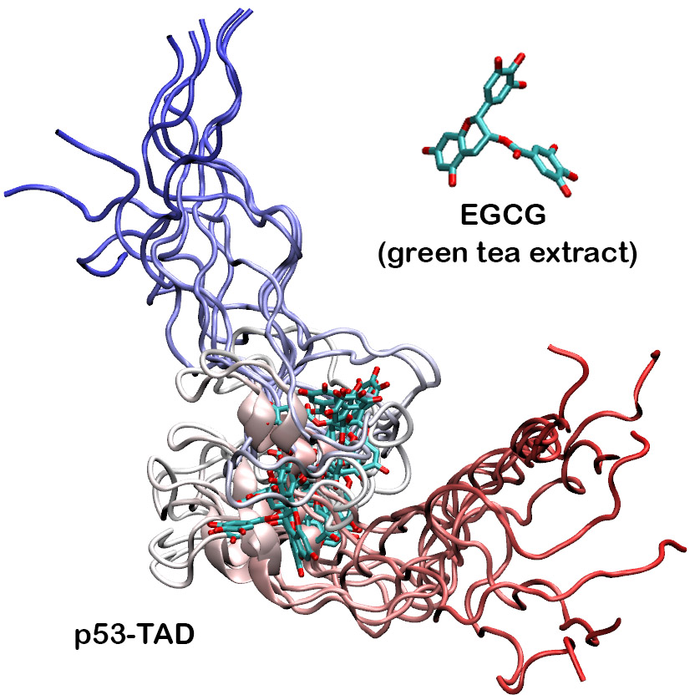Jianhan Chen, a University of Massachusetts Amherst chemistry and biochemistry and molecular biology professor, has received a five-year, $2 million National Institutes of Health (NIH) grant to support research in his computational biophysics lab aimed at better understanding the role of intrinsically disordered proteins (IDPs) in biology and human disease.

Credit: UMass Amherst/Chen Lab
Jianhan Chen, a University of Massachusetts Amherst chemistry and biochemistry and molecular biology professor, has received a five-year, $2 million National Institutes of Health (NIH) grant to support research in his computational biophysics lab aimed at better understanding the role of intrinsically disordered proteins (IDPs) in biology and human disease.
The grant falls under the National Institute of General Medical Sciences MIRA program, which stands for Maximizing Investigators’ Research Award. It’s designed to give highly talented researchers more flexibility and stability to achieve important scientific advances in their labs.
“The MIRA award enables us to continue working on several central problems regarding the study of disordered proteins and dynamic interactions. The flexibility of this funding mechanism also allows us to follow new research directions as they emerge,” Chen says.
Until relatively recently, it was thought that proteins needed to adopt a well-defined structure to perform their biological function. But about two decades ago, Chen explains, IDPs were recognized as a new class of proteins that rely on a lack of stable structures to function. They make up about one-third of proteins that human bodies make, Chen explains, and two-thirds of cancer-associated proteins contain large, disordered segments or domains.
“This disorder seems to provide some unique functional advantage, and that’s why we have so much disorder in certain kinds of proteins,” Chen says. “These IDPs play really important roles in biology, and when something breaks down, they lead to very serious diseases, like cancers and neurodegenerative diseases.”
In his lab, Chen and colleagues focus on using computer simulations to model the molecular structure and dynamics of proteins. “IDPs are a mess; it’s difficult to determine the details of their properties because they are not amenable to traditional techniques that are designed to resolve stable protein structures,” he says.
Because of their chaotic state, IDPs must be described using ensembles of structures, and computer simulations play a crucial role in the quantitative description of these disordered ensembles. “Our goal is really trying to combine simulation and experiments in collaboration with other labs to tease out what are the hidden features of these disordered proteins that are crucial to their function,” Chen says. “Then we can look at how these specific features might be perturbed by disease-related mutations or conditions.”
The next step would be to develop effective strategies for targeting disordered protein states. Toward that end, Chen’s lab will study the molecular basis of how the anti-cancer drug EGCG, an antioxidant found in green tea extract, and their derivatives interact with the p53 gene, a tumor suppressor and the most important protein involved in cancer.
The key, he says, is knowing how to design drug molecules to bind well enough to IDPs to achieve a therapeutic effect. Traditional, structure-based drug design strategies are faced with significant challenges, Chen says, because IDPs do not contain stable, “druggable” pockets.
“We believe that targeting IDPs requires new strategies that explore the dynamic nature of IDP interactions,” Chen says. “If we can do this, it could really open up a whole class of drugs that were previously thought impossible.”




